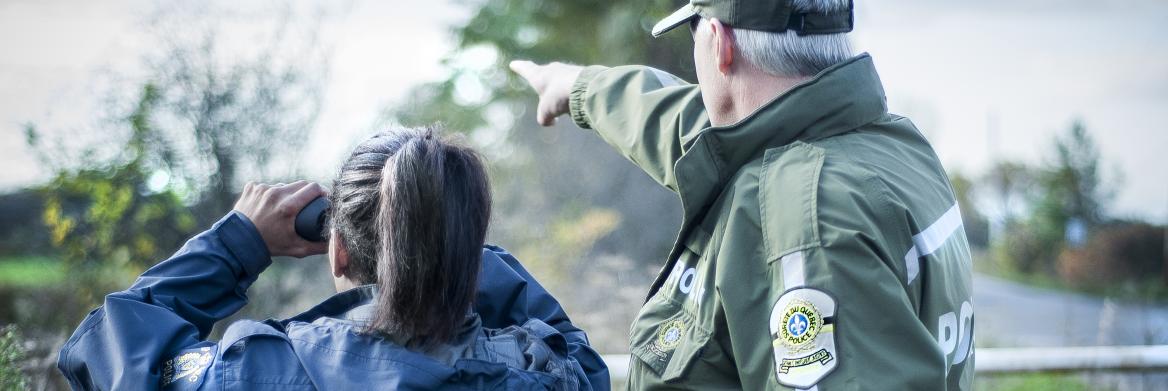In 2014, a specialized team of police officers infiltrated a drug trafficking ring in Gespagegiag, Quebec. The operation involved nearly 50 police officers who seized hundreds of prescription drugs, marijuana and other illegal goods from the small Aboriginal community.
This operation was just one of hundreds of similar busts made by the Aboriginal Combined Forces Special Enforcement Unit (A-CFSEU) in the province of Quebec.
"It made a big impact," says Cst. Tommy Condo, a First Nations police officer from Gespagegiag who now works with the A-CFSEU. "When I saw the way they worked, it motivated me to come and join this team."
Managed by the RCMP's C Division, the unit also includes members from the Sûreté du Québec, and various Aboriginal police forces. Together, they share expertise and perform investigations to dismantle drug and criminal organizations in Quebec's 55 Aboriginal communities and reserves.
"Every Aboriginal community has problems with drug and alcohol consumption," says Cst. Bianka Sharl-Roy, a First Nations officer with the Eeyou Eenou Police Force currently seconded to the A-CFSEU. "If we can stop it at the source, it will help not only my community, but others as well."
Condo and Sharl-Roy are both on a two-year contract with the A-CFSEU. The unit takes on five First Nations police officers at a time from Aboriginal communities throughout Quebec.
The goal is to train them and broaden their investigative experience — particularly in relation to drugs and firearms — before they return to their home communities. At the same time, the First Nations members bring valuable cultural and community knowledge.
"It's a big circle," says Cpl. Phil Forest, a liaison officer with A-CFSEU. "The First Nations police are able to bring back their training, and they can take charge of projects and investigations in their own community."
Aboriginal connections
The A-CFSEU emerged in 2004 when the RCMP recognized the need for better collaboration between different police agencies and Aboriginal communities in Quebec.
"Open communication between partners leads to better results for everyone," says Forest. "It's essential for the RCMP, but also everyone else. We're there for the First Nations people, and they help us in return. It's a win-win situation."
The unit works out of C Division's headquarters in Montreal. There, trainees are paired with experienced police officers and investigators. The First Nations officers, whose primary experience is in general patrol, learn how to do warrants, surveillance and interviews.
"We don't have any investigators in our communities. That's one of the reasons I came here — to start learning," says Condo. "I'm at the best place to do it; I'm working with people who do investigations on a daily basis."
Condo and Sharl-Roy both requested to join the A-CFSEU after seeing the impact of the unit's investigations on their home communities.
"I can't get that kind of experience working in the small Aboriginal communities because of the small number of people," says Sharl-Roy, a police officer since 2011. "Coming here, I'm getting a lot of experience with investigation and teamwork to bring back home."
Training First Nations officers is also a good way to ensure that police are representative of the communities they patrol.
"First Nations police officers understand the needs of the First Nation," says Forest, who is Cree. "They understand the culture and the socio-economics. And by better understanding, their interventions can be a lot more effective and positive."
Evolving program
This past year, the A-CFSEU has undergone a shift, focusing on smaller, rural Aboriginal communities.
"It's important to look at the little communities that don't have enough police officers, or the experience and resources, because they're the ones who need it," says Lt. Guilia Di Bartolo, officer in charge of the A-CFSEU, and a member of the Sûreté du Quebec. "It's devastating what the drugs are doing there."
Although there are high levels of crime in larger communities, Di Bartolo says they aren't the only epicentres of organized crime. So she tweaked the program, identifying and targeting those areas that needed help.
"Since then, the calls are coming in," she says. "My ultimate goal is to reach as many communities as I can."
Reprinted with permission from the Pony Express ().
